Chile's president defiant over abortion changes
- Published
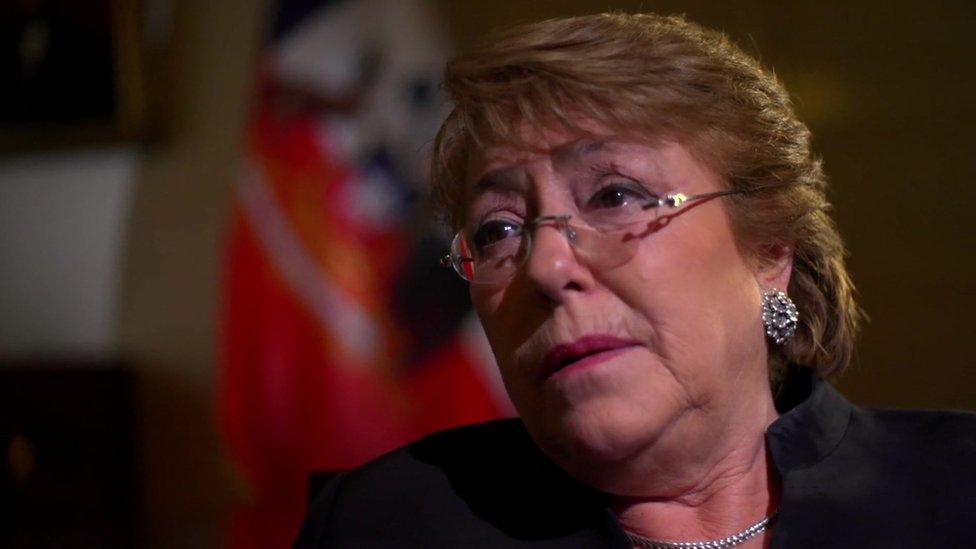
Chile is one of only six nations in the world where a woman can be prosecuted for having an abortion whatever the circumstances. Its first female president, Michelle Bachelet, is trying to change that, against stiff opposition.
"I believe that women should have legally the possibility of making their own choices. In this country until now this is criminalised - if you interrupt your pregnancy, you will go to jail. And I believe this is not fair," Ms Bachelet told me.
"Women could be in an unhealthy situation because of rape, et cetera, and there might be women who don't want babies in that situation."
First elected in 2006 and now back as president after Sebastian Pinera took the reins for four years, Ms Bachelet has made it her mission to change her country's restrictive abortion laws.
The changes would decriminalise abortion at up to 12 weeks:
if the mother's health was at risk
if the foetus would not survive the pregnancy
if the mother had been raped
And if the mother was under 14 years old, the limit would be extended to 18 weeks.
The proposal has been passed by the country's lower house, but needs Senate approval to become law.
'Powerless'
Urban Chile seems a modern and sophisticated place.
You see gay couples holding hands and a strong alternative street culture.
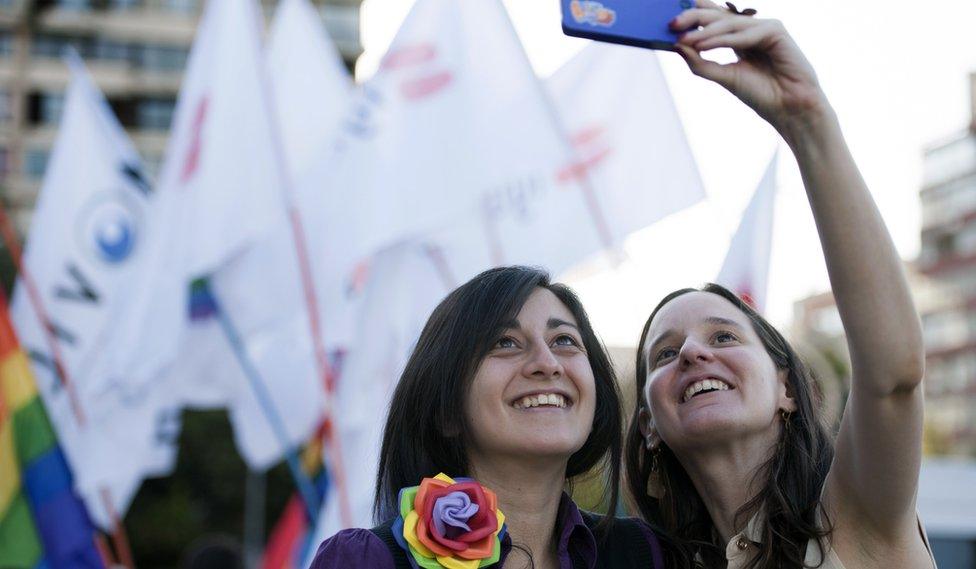
Same-sex civil unions have been legal since last year - this couple celebrated in the capital, Santiago
But some old attitudes endure.
Despite being illegal in Chile, abortions do take place.
Those who can afford it turn to underground private clinics or personal contacts to get them Misoprostol, known as the abortion drug.
But if you are poor, your options are limited.
Paola and Andrea, in their early 40s, both had planned pregnancies and then found they were carrying fatally damaged foetuses.
Paola said she had felt "like a walking corpse, and like my son's coffin. It was torture".
She said abortion must be a very painful experience, but not as much as forcing that baby to be born.
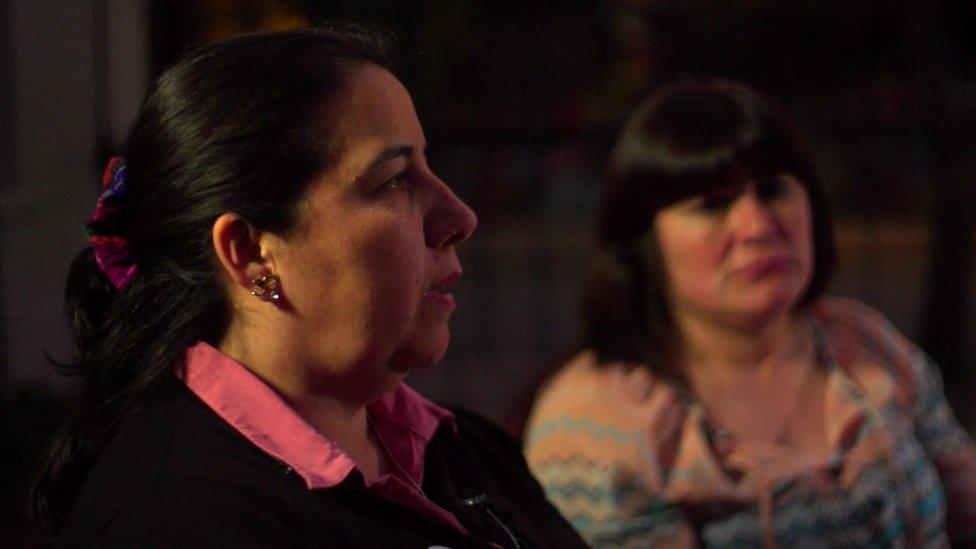
Paola and Andrea both had to give birth to babies they knew could not survive
The best advice Paola's doctor could give her was to pray.
She was not allowed an abortion; neither was Andrea, even though her life was under threat.
Both had to carry their babies for months and give birth to them - without any hope they would live.
Andrea told me: "I felt powerless, having to live this process after having my daughter declared unviable.
"I suffered unnecessarily and so did my family."
Later, the president told me she had watched some of her friends go through the same thing.
"There are some people who might be able to live with that, and that's OK, but there's a lot of people who really are destroyed emotionally afterwards, and their lives are changed forever. So that's why we do believe they should have the possibility to decide by their own, what they prefer."

States where abortion is completely illegal:
Chile
The Dominican Republic
El Salvador
Malta
Nicaragua
The Vatican

Previous governments have tried to liberalise the law, but President Bachelet's bill has already gone much further down the legislative process than any before.
But the proposal remains very controversial, with opposition led by the Church.
At the beginning of September, it organised a rally in the capital, which attracted support from tens of thousands of people.
'It would give a fair chance to women'
Gloria: "Abortion scars you for life"
One of them, Gloria, was raped at the age of 12 by a cousin, and made to have an abortion by her family.
She never recovered, and has tried to take her own life several times.
Gloria told me: "In my case, if I had the choice, I would have had my daughter. But it wasn't my choice.
"Abortion scars you for life - before and after.
"Nothing good comes out of abortion - nothing, nothing."
'Women are still dependent'
In Chile, many conversations lead back to the country's violent past, when the democratic government of Salvador Allende, external was overthrown by a coup led by Gen Augusto Pinochet, external.
The general banned abortion in 1989, in one of the last acts of his military government.
Despite being predominantly Catholic, Chile had allowed pregnancy terminations until then.
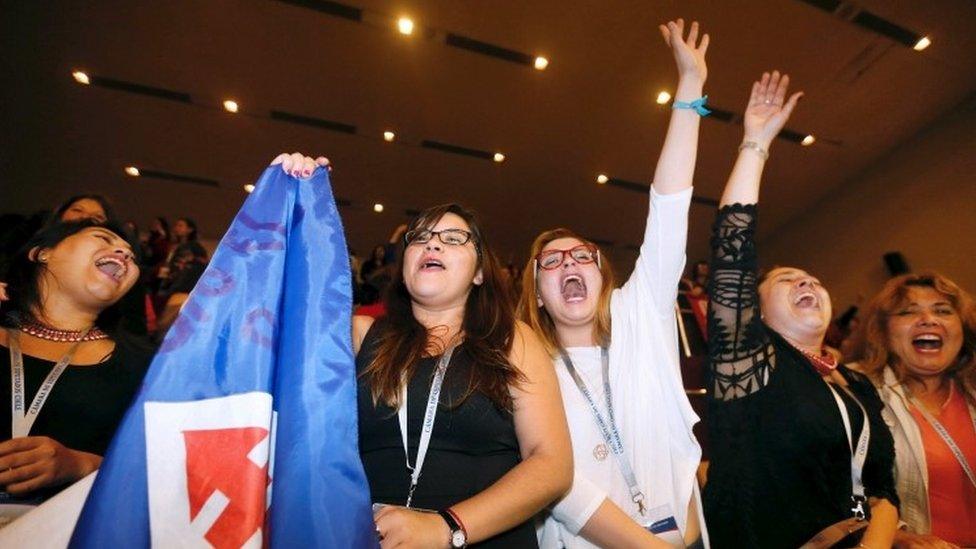
Opinion polls suggest 70% of Chileans approve of the changes proposed by the government
Human rights lawyer Lorena Frias told me the military dictatorship still cast a shadow over Chile's attitude to personal freedom and to abortion.
"Even 20 years after the dictatorship, human rights is not part of the political agenda," she said.
"This makes it more difficult to argue in terms of international standards in favour of women.
"In Chile, women are still dependent.
"Women do not have the decision over their bodies, over their own financial things, over their own liberty, so it is more difficult to push forward the abortion agenda."
Despite the controversy, President Bachelet appears to have most of the public behind her.
And she is hopeful Chile's women will soon have choices available to them that their mothers were denied.
- Published18 March 2016
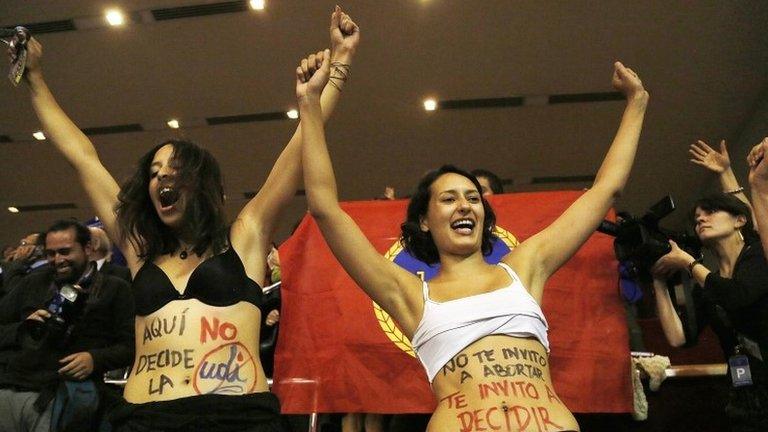
- Published7 May 2015
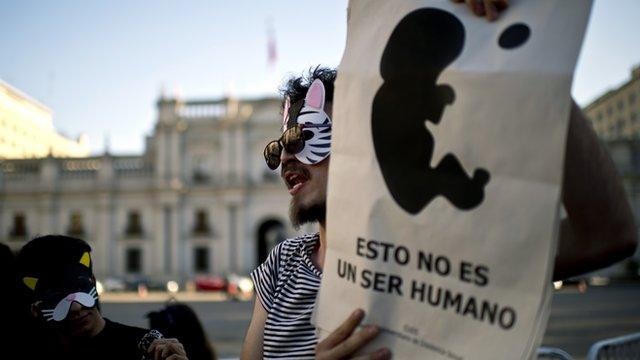
- Published7 March 2015
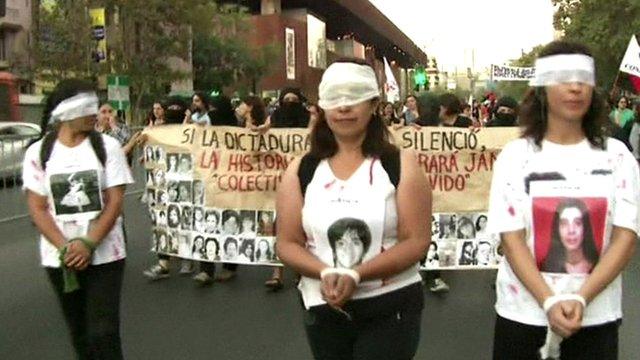
- Published31 January 2015
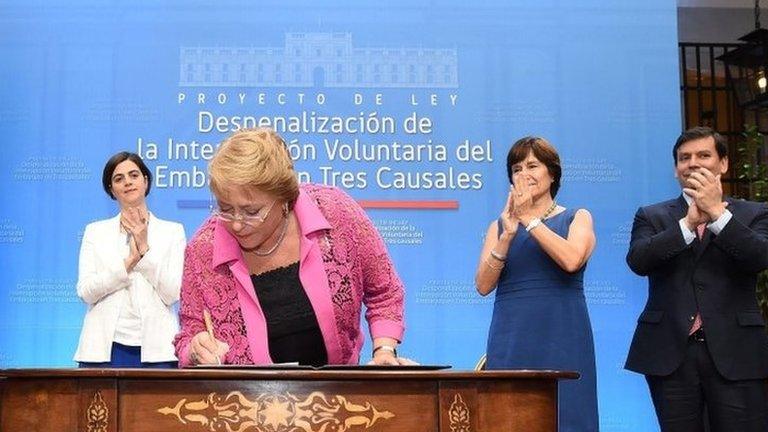
- Published10 July 2013
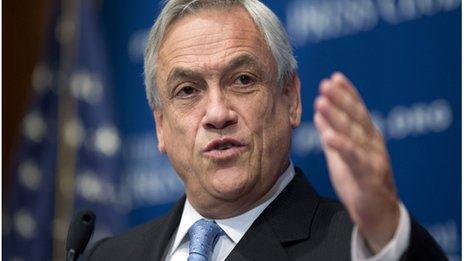
- Published12 July 2013

- Published12 May 2016
